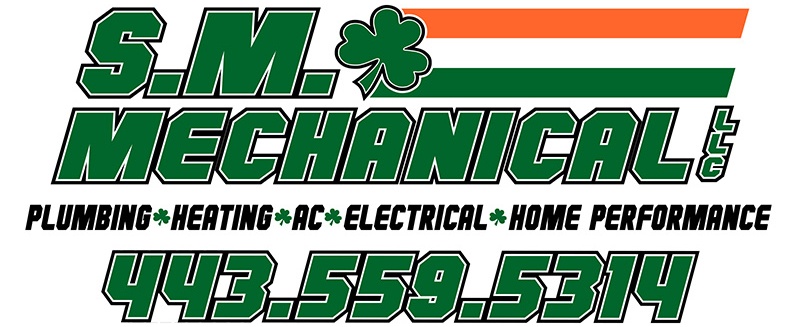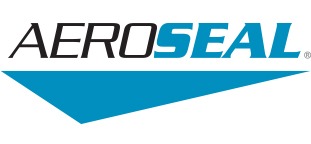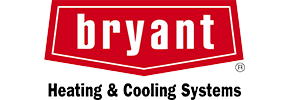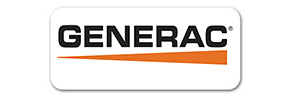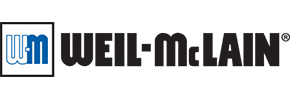Furnace Replacement | SM Mechanical LLC
What is a Furnace?
A furnace is a crucial component of a home’s heating system, responsible for generating warm air and distributing it throughout the building via a network of ducts. This warm air ensures that your home remains comfortable during the colder months. Furnaces can be powered by various energy sources, including natural gas, oil, electricity, and propane. Each type of furnace has its own set of characteristics, making it essential to choose the right one based on your specific needs and the climate in your area. Electric furnaces use electricity as their fuel source and are often used in areas with mild winters. They are typically less expensive to install than gas or oil furnaces but can have higher operating costs due to electricity prices. The electric furnaces’ average replacement cost can be higher over time, especially in regions where electricity prices are higher than other fuel sources. Additionally, furnaces are integral to the overall HVAC (heating, ventilation, and air conditioning) system, working in tandem with air conditioning units to maintain a comfortable indoor environment year-round.
Types of Furnaces
There are several types of furnaces available, each with its unique characteristics, advantages, and disadvantages. The most common types of furnaces include:
-
Natural Gas Furnaces: These furnaces use natural gas as their fuel source and are known for their high efficiency and low operating costs. They are a popular choice in areas where natural gas is readily available, offering a reliable and cost-effective heating solution.
-
Oil Furnaces: An oil furnace uses oil as its fuel source and is often used in regions where natural gas is not available. They are prevalent in colder climates and can be more expensive to operate than natural gas furnaces. However, they remain a viable home heating option, especially when considering the costs associated with converting to alternative energy sources like natural gas. Homeowners must weigh the financial implications of replacing versus installing a new oil furnace.
-
Electric Furnaces: Electric furnaces use electricity as their fuel source and are often used in areas with mild winters. They are typically less expensive to install than gas or oil furnaces but can have higher operating costs due to electricity prices.
-
Propane Furnaces: Propane furnaces use propane as their fuel source and are often used in areas where natural gas is not available. They offer a good balance between efficiency and cost, making them a suitable alternative to natural gas furnaces.
Factors Affecting Furnace Costs
The cost of a furnace can vary significantly depending on several factors. Understanding these factors can help you make an informed decision when purchasing a new furnace.
Furnace Type
The type of furnace you choose can significantly impact the cost. Different types of furnaces have varying price points, with some being more expensive than others. For example, gas furnaces are generally more expensive than electric furnaces, but they can provide more efficient heating and lower energy bills in the long run. Gas furnaces are known for their high efficiency and reliability, making them a popular choice despite the higher initial investment. On the other hand, electric furnaces might have a lower upfront cost but can lead to higher energy bills due to electricity prices. Propane and oil furnaces also have their own cost considerations, new furnace cost is often influenced by fuel availability and regional preferences.
Size and Capacity
The size and capacity of the furnace also play a crucial role in determining the cost. A larger furnace with a higher capacity will typically cost more than a smaller one. However, it’s essential to choose a furnace that is the right size for your home to ensure efficient heating and to avoid wasting energy. Proper sizing ensures that your furnace operates efficiently, providing consistent warmth without overworking the system. An undersized furnace will struggle to heat your home, leading to higher energy consumption and wear and tear, while an oversized furnace can cycle on and off too frequently, wasting energy and increasing your energy and heating bills further.
Energy Efficiency
The energy efficiency of the furnace is another critical factor that affects the cost. High-efficiency furnaces, such as those with a high AFUE (Annual Fuel Utilization Efficiency) rating, can be more expensive upfront but can provide significant savings on energy bills over time. Look for furnaces with a high AFUE rating to ensure you’re getting the most energy-efficient option. Investing in a high-efficiency furnace can lead to lower energy costs and a smaller carbon footprint, making it a smart choice for both your wallet and the environment. Additionally, some high-efficiency models may qualify for rebates or tax credits, further offsetting the initial investment.
When to Replace a Furnace
Knowing when to replace a furnace can be a challenging decision. Here are some signs that indicate it’s time to replace your furnace:
-
Age: If your furnace is approaching or has exceeded its expected lifespan (typically 15-20 years), it may be time to consider replacing it. Older furnaces are less efficient and more prone to breakdowns, making a new furnace a more reliable and cost-effective option.
-
Energy Efficiency: If your furnace is no longer providing efficient heating, or your energy bills are increasing, it may be time to consider replacing it with a more energy-efficient model. Upgrading to a high-efficiency furnace can significantly reduce your energy bills and improve your home’s comfort.
-
Repair Costs: If the cost of repairs is becoming too high, or you’re experiencing frequent breakdowns, it may be more cost-effective to replace the furnace altogether. Continual repairs can add up quickly, and investing in a new furnace can save you money in the long run.
-
Safety Concerns: If you notice any safety concerns, such as leaks, corrosion, or unusual noises, it’s essential to replace the furnace to ensure your safety and the safety of your home. A malfunctioning furnace can pose serious risks, including carbon monoxide leaks and fire hazards.
By considering these factors and signs, you can make an informed decision about when to replace your furnace and choose a new one that meets your needs and budget. Replacing an old, inefficient furnace with a new, energy-efficient model can enhance your home’s comfort, reduce your energy bills, and provide peace of mind knowing your heating system is safe and reliable.
Furnace Replacement You Can Count On
Like every other mechanical system in your home or business, your furnace will eventually fail. Or it has become so costly to operate or you’re spending so much on furnace repairs that it’s become a money pit. If this scenario sounds familiar, it’s time to consider furnace replacement. You might also consider getting a new furnace if yours is older and inefficient. There are some great rebates and tax credits available right now.
Natural Gas Furnace Replacement Considerations
Once you’ve made the decision to move forward with furnace replacement, there are several top considerations. Factors such as energy efficiency ratings, size, and brand choice can significantly impact the overall new furnace installation cost. Homeowners should also consider the tax credit available for new oil and gas furnaces, which under current tax law, are eligible for a 30% credit of the total project cost, with a cap of $600. Consulting professionals is important to ensure eligibility. They include:
Furnace installation cost can vary based on the type of furnace—whether electric, oil, propane, or natural gas—and the specific installation services required.
Proper Sizing
The size of your home or business will dictate the proper sizing of your new furnace. We don’t mean physical sizing, but rather the heating capacity. A very basic furnace, rule of thumb is that you need 30 BTUs (British Thermal Units) for every square foot of your house. So, a 1,000 sq. ft. house would need a 30,000 BTU furnace, and a 2,000 sq. ft. house would need a 60,000 BTU furnace, and so on.
You don’t want a system that is bigger than you need, because you will waste energy. And a smaller unit won’t heat your home properly. We can help you determine proper gas line sizing for your needs. The size of the furnace can significantly impact the gas furnace cost, as larger units with higher BTUs generally cost more.
Annual Fuel Utilization Efficiency
Today’s HVAC units are more energy-efficient than ever. In general, we would recommend purchasing the most energy-efficient units that you can. While the upfront cost will be higher, you will recoup that money in the form of lower energy bills.
For a gas furnace, a unit’s AFUE (Annual Fuel Utilization Efficiency) is the measurement used for efficiency. The AFUE measures how efficiently a furnace converts energy from the fuel it uses into the warm air that heats your home or business. The higher the AFUE, the more efficient the furnace is. A natural gas furnace is often more cost-effective and efficient compared to other heating options like propane furnaces and boilers, offering lower running costs and better energy efficiency. Certain, gas units are eligible for tax credits if they meet specific energy efficiency requirements.
Replacing the AC Unit at the Same Time
If you want your new furnace to run at peak performance, we, and the manufacturers, recommend that you replace electric furnace and your air conditioning unit at the same time, and get a matched HVAC system. The heating and cooling units share an air handler. Replacing both units at the same time will save you a lot of money in the long run due to lower energy costs.
Mixing and matching a new unit with an old unit can decrease the efficiency of both units and may void a manufacturer’s warranty. Proper installation of a new gas furnace is crucial, as it can impact the furnace ranges overall efficiency and involve significant cost implications, including labor and permits.
Furnace Installation and Replacement Costs
The cost of installing or replacing a furnace can vary widely depending on several factors, including the type and size of the existing furnace, the complexity of the installation, and the location. On average, the cost of installing a new furnace can range from $2,000 to $6,500. This range can be influenced by the specific requirements of your home, such as the need for ductwork modifications or electrical upgrades. Replacing an old furnace can sometimes be more expensive, especially if additional work is required to ensure compatibility with your existing HVAC system. A propane furnace can be a cost-effective and efficient alternative, particularly for homes without natural gas access, though it may involve additional costs for conversion and installation. It’s important to consider these factors when budgeting for a new furnace to avoid any unexpected expenses.
Furnace Maintenance and Repair
Regular maintenance is essential to ensure that your furnace operates efficiently and safely. This includes tasks such as frequent repairs such as changing the air filter, cleaning the burners, and inspecting the ductwork. Regular maintenance not only extends the lifespan of your furnace but also helps maintain its energy efficiency, leading to lower energy bills. Repairing a furnace can be costly, especially if it requires replacing major components such as the heat exchanger or blower motor. On average, the cost of repairing a furnace can range from $100 to $1,200, depending on the extent of the damage and the parts needed. Hiring professional heating and cooling contractors for regular maintenance can help prevent costly repairs and ensure your furnace runs smoothly.
Why Hire Us as Your Heating and Cooling Contractors?
Since 2009, the team at SM Mechanical LLC has been providing expert and competitively priced furnace replacement services to homeowners and businesses throughout the Baltimore area. If you’re considering furnace replacement, be sure to check our Promotions page for special offers.
We’re family-owned and operated and treat all of our customers with the utmost respect. We strive to educate you about your HVAC system so you can make good decisions. Our goal is to be the only HVAC and Plumbing company you ever call.
Testimonial
“SM Mechanical just installed our new furnace. Brad came out and gave us the estimate. On the install day Clayton and Dominick were on time, professional, courteous and very friendly! I highly recommend them!”
-Deb
FAQs
Q: What is the average the cost to replace and of installing a new furnace?
A: The average cost of installing a new furnace can range from $2,000 to $6,500.
Q: What is the most efficient type of furnace?
A: Natural gas furnaces are generally the most efficient type of furnace, with some models achieving efficiency ratings of 90% or higher.
Q: How often should I replace my furnace?
A: The lifespan of a furnace can vary depending on several factors, including the type and quality of the furnace, usage, and maintenance. On average, a furnace can last for 15 to 30 years.
Q: What is the difference between a single-stage and two-stage furnace?
A: A single-stage furnace operates at a single speed to produce heat only, while a two-stage furnace operates at two different speeds, allowing for more efficient heating and cooling.
Q: Can I install a furnace myself?
A: It is not recommended to install a furnace yourself, as it requires specialized knowledge and skills. It is best to hire a professional HVAC contractor to ensure a safe and energy efficient furnace installation.
Q: What are the pros and cons of DIY furnace installation versus hiring a professional?
A: DIY furnace installation can save money upfront, but it comes with significant risks and potential inefficiencies due to the complexity of furnace systems. Improper installation can lead to safety hazards and reduced efficiency. Hiring a professional ensures that the installation of furnace repairs is done correctly, safely, and efficiently, leveraging their expertise and experience.
Call Now for a FREE Furnace Replacement Quote
SM Mechanical LLC is the name you can trust for exceptional and affordable furnace repair or replacement in the Baltimore area, including Baltimore City, Baltimore County, Harford County, Carroll County, Anne Arundel County, and Howard County. Contact us today by calling (410) 559-9514 or filling out the form for a free estimate.
